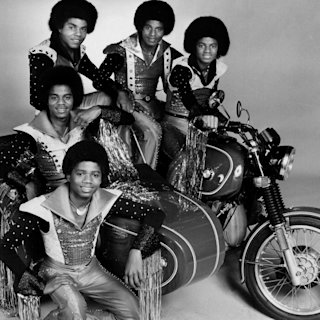
The Ramones perform with Marshall amplifiers at CBGB in 1977.
A cream-coloured awning emblazoned with red lettering once marked the location of New York’s most iconic cultural hub: CBGB & OMFUG, or ‘Country, Bluegrass and Blues, and Other Music For Uplifting Gormandizers’, to give it its full name. From this humble space, which opened in 1973, generations of artists would challenge the status quo, redefine the city, and transform music worldwide forever.
CBGB’s fame remains much grander than the inside of the club once looked. Above a haphazardly uneven floor the walls were covered in the names of bands who’d played there. The air was thick with the stench of cigarettes. And the toilets were decorated with a chaotic scramble of graffiti and stickers. It wasn’t glamorous, but its squalid innards matched the sound and ethos of the artists and audiences that would flock there – united by their frustrations with society and a universal passion for music.
It wasn't glamorous, but its squalid innards matched the sound and ethos of the artists and audiences that would flock there - united by their frustrations with society and a universal passion for music.
This was a melting pot like no other, where artists launched era-defining careers that would change the course of alternative music. It was also a nexus of musical crossover: Patti Smith intertwined punk with poetry, Blondie laced rock with disco, and Talking Heads fused funk with pop and African rhythms. The creativity was palpable, and these weren’t isolated moments, either. These influential artists were often performing on the same bills together.



From this humble space, which opened in 1973, generations of artists would challenge the status quo, redefine the city, and transform music worldwide forever.
While the club might be best known as a revolutionary place where genres were expanded in the ‘70s, it didn’t lose relevance thereafter. In the ‘80s, Bad Brains, Agnostic Front and Gorilla Biscuits transformed the venue into a hardcore punk mecca, and Korn and Green Day played there in the ‘90s. CBGB weathered the storm of an ever-changing city for decades, until it finally succumbed to Manhattan’s rising rents just as a new indie revolution was taking hold in the new millennium. After a final show by Patti Smith in 2006, the venue closed its doors for good.



